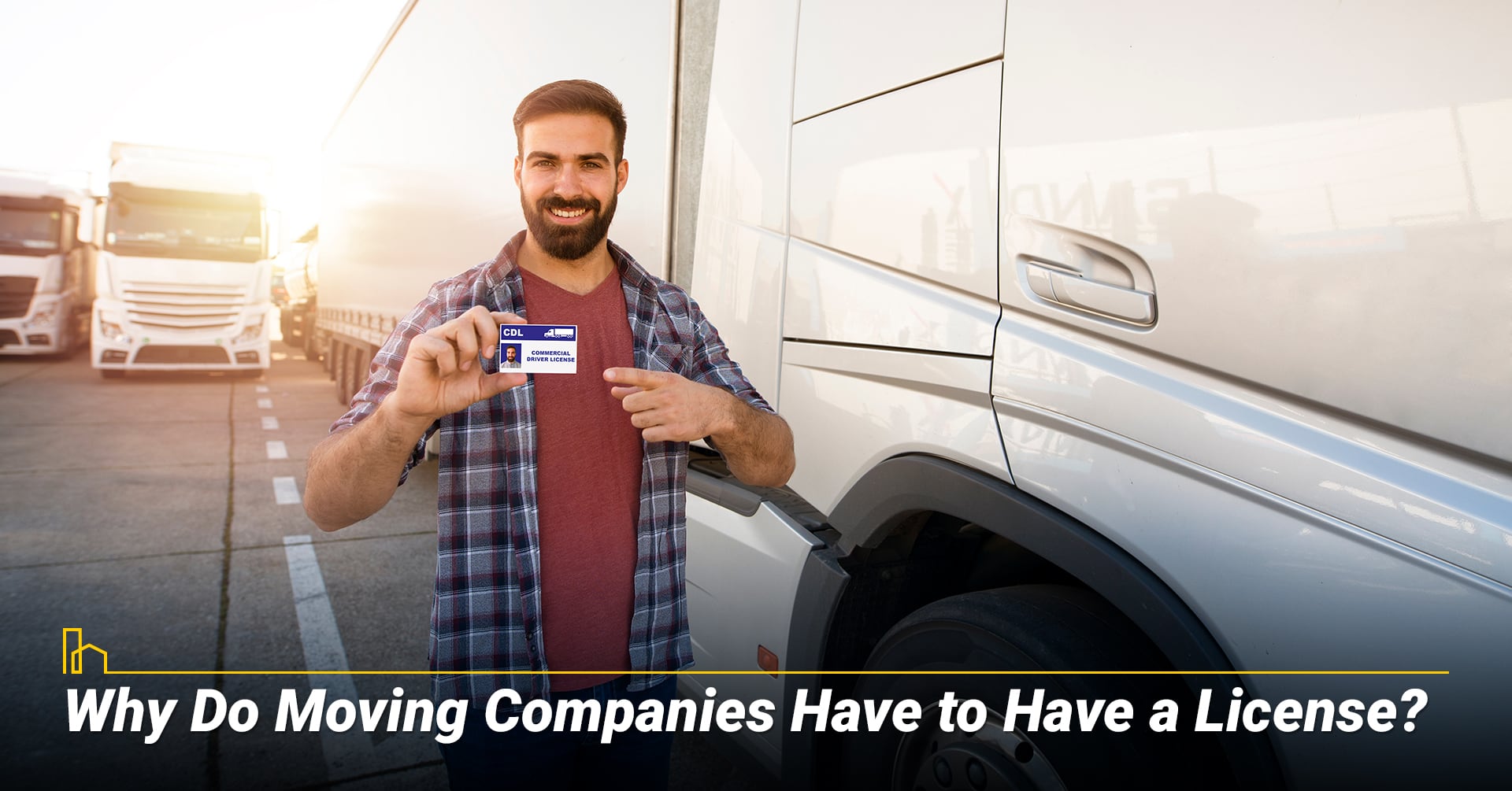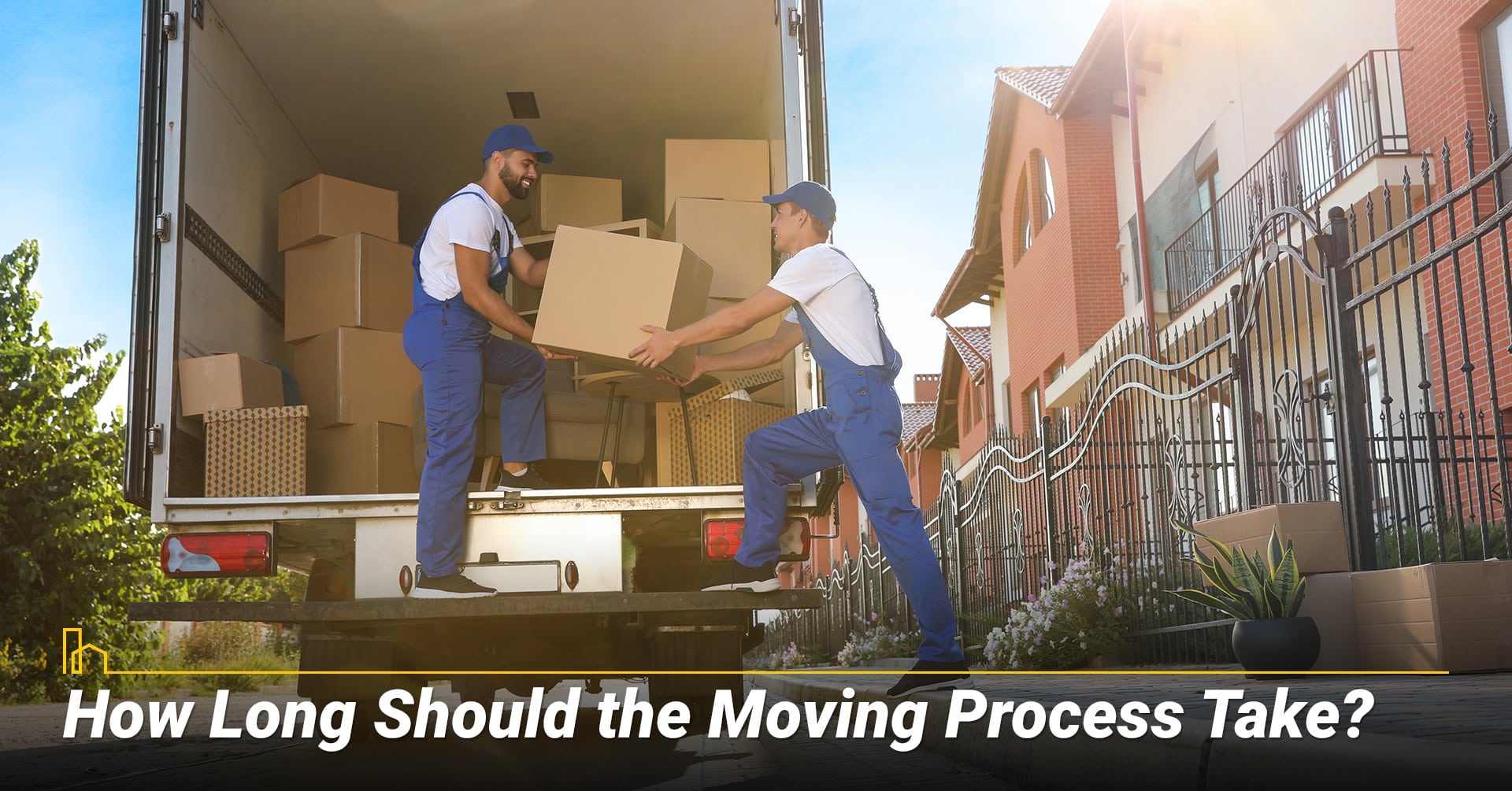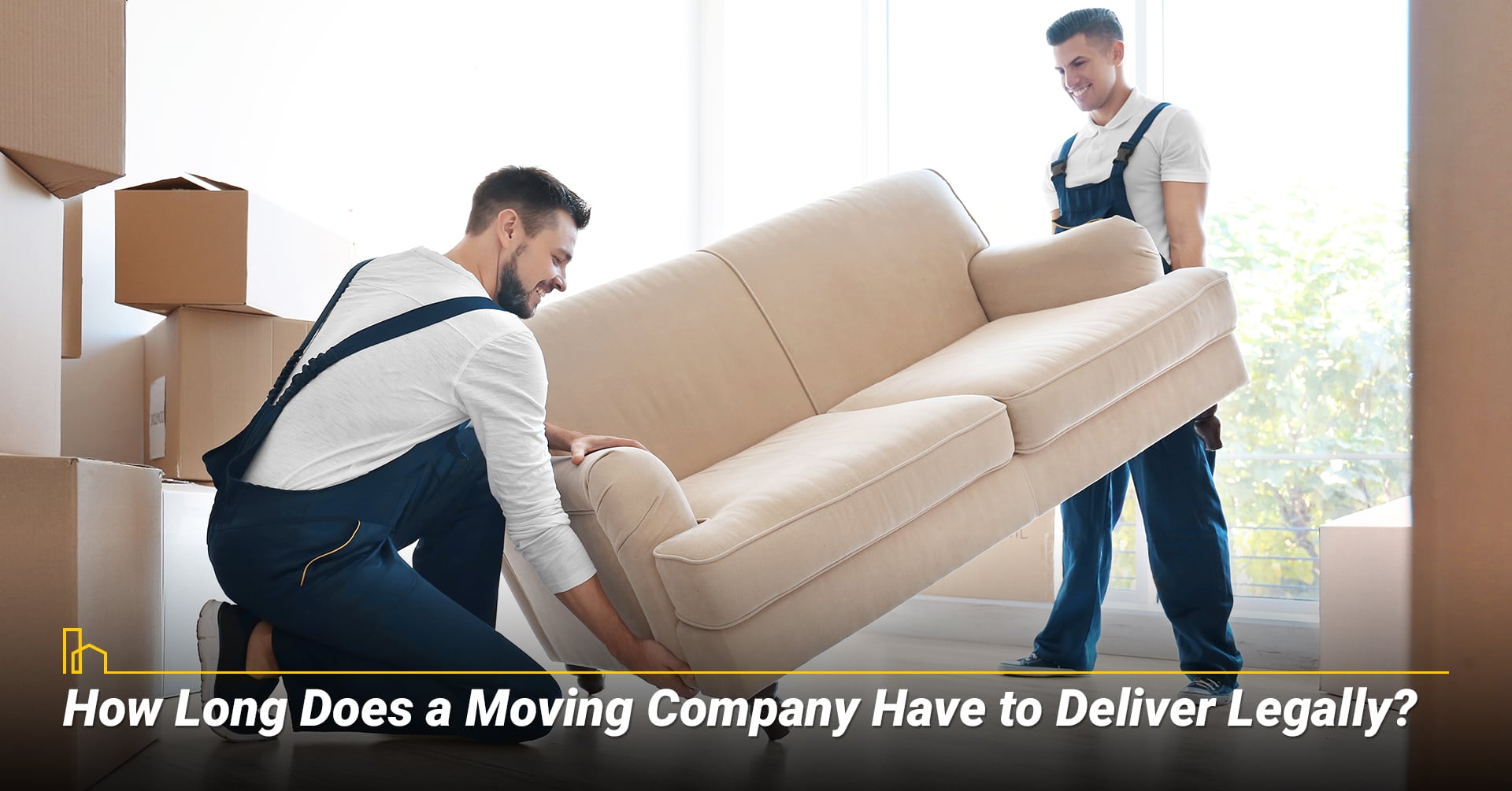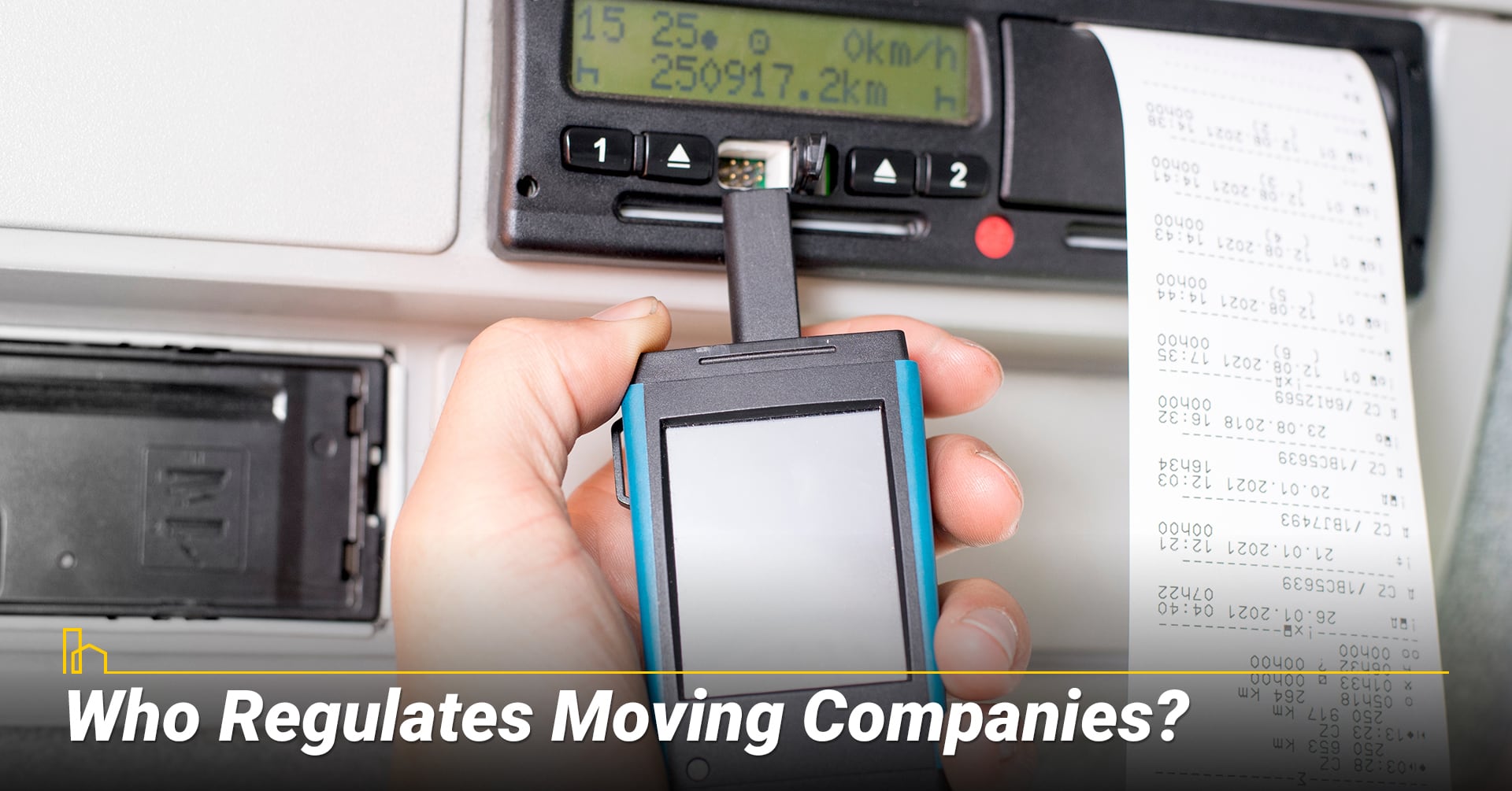What Permits Do I Need to Start a Moving Company?
- Author:by The HOMEiA Team
- Category: Real Estate Investing

Starting a moving company is no small task.
There are a lot of moving pieces (pun intended!) and tons of permits, paperwork, and regulations that need to be accounted for.
Whether you’re an entrepreneur just starting out or an established business owner looking to expand into the industry, if your goal is to open a successful moving company, you need to make sure you understand which permits and licenses are required in your area.
If you’re wondering what permits you need to start a moving company, this post is for you. We will take a look at the fundamentals behind permit requirements so that you can get up and running (and on the road) quickly.
Table of Contents:
- 1. What Permits Do I Need to Start a Moving Company?
- 2. What Are Bingo Stamps?
- 3. Why Do Moving Companies Have to Have a License?
- 4. Who Regulates Moving Companies?
- 5. How Long Should the Moving Process Take?
- 6. How Long Does a Moving Company Have to Deliver Legally?
- 7. Is Owning a Moving Company Profitable?
1. What Permits Do I Need to Start a Moving Company?
So what permits will you need to start your new moving company? Unfortunately, the answer isn’t as clear-cut as you might hope. Each state has different requirements in terms of licensing, and there are also rules you’ll need to follow at the federal level.
Let’s take a closer look.
A. Federal Licenses

First and foremost, if you are out-of-state movers who plan on moving people’s belongings between states, then you’ll need to register with the US Department of Transportation’s Federal Motor Carrier Safety Administration (FMCSA). You’ll be granted a USDOT number that identifies your commercial vehicles.
In addition to the USDOT number, you’ll also need at least one federal operating authority number (sometimes more).
When applying for these numbers, you’ll need to provide proof of insurance and bonding. You will also need contact details for process agents.
For some states, a USDOT license is the only permit required to start a moving company. These are:
- Alaska (only USDOT)
- Arizona (only USDOT)
- Delaware
- District of Columbia
- Maine (only USDOT)
- Maryland (only USDOT)
- Rhode Island
- South Dakota (only USDOT)
- Utah (only USDOT)
- Vermont
However, there are some states that require additional permits and licenses. For example, California requires movers to obtain a Motor Carrier Permit (MCP) from the California Public Utilities Commission. Some states also require you to obtain a “certificate of public convenience and necessity,” which is essentially a license to operate.
Aside from state-specific requirements, you should also be aware of any local licenses or permits you may need.
For example, you may need to obtain a local business license to operate in a particular city or county. You should also check with your state and local fire departments to ensure you’re meeting any safety regulations they may have.
An Ultimate Guide to Moving for Home Buyers and Sellers
Buying and selling a home doesn’t make you an expert in moving. Buying and selling are much more different when you’re actually moving. Carefully go through the tips listed below and uses these as your ultimate guide whenever moving…
B. Local and State Licenses
A local license is a permit that is issued by the city or county in which you plan to operate your business. It’s essentially a ticket to operate within that specific municipality. Depending on where you’re located, there may be specific requirements that you need to meet.
For example, you may need to have a certain amount of insurance coverage, show that your business is registered with the state, or prove that you have the necessary equipment.
State licenses are issued by the state government and are required for certain businesses, including moving companies. If you’re planning on starting a moving company that crosses state lines, again, you’ll need to obtain a USDOT number.
Depending on the state in which you’re operating, you may need to obtain a state-specific DOT number. These are issued by the state and are required for intrastate moves. To find out if your state requires a specific DOT number, you’ll need to visit your state regulator’s website.
In some states, there may be additional requirements that you need to meet. For example, in California, moving companies are required to file a $25,000 surety bond with the California Public Utilities Commission (CPUC). This bond ensures that the company will abide by state regulations and pay any fines or fees assessed by the CPUC.
Finally, it’s important to note that regulations regarding moving companies are constantly changing. It’s important to stay up to date on any changes in your state’s regulations to ensure that you’re in compliance. Make sure to check your state regulator’s website regularly for updates.
You will want to take the time to research each state’s requirements (the state you are traveling to as well as the state you’re traveling from) to make sure you have everything you need.
C. Overweight/Oversize Load Permits for Larger Vehicles (Depending on State)
If your moving company operates with larger trucks or trailers, you may need to obtain permits for overweight or oversize loads. The requirements for these permits can vary depending on the state where your company is based.
For example, in Texas, moving companies must obtain a permit if the vehicle and load exceed 80,000 pounds.
In California, the limits are stricter, and any vehicle over 10,000 pounds must get a permit.
Make sure to research the regulations in your state to avoid any legal issues.
D. International Moving Requirements
If your moving company plans to move items internationally, you’ll need to follow international moving requirements. This may include obtaining a Freight Forwarder permit or a Federal Maritime Commission number.
Being certified by the American Moving and Storage Association (AMSA) or having membership in a moving federation such as the FIDI Global Alliance can help show potential customers that you run a professional moving service.
E. Business Licenses
Before you start operating your moving company, you need to obtain a business license from your local government. This can typically be done through your city hall or county office.
You also need to obtain a tax ID number from the IRS and register to collect sales tax in your state. Make sure to research the licensing requirements in your area to avoid any legal issues or fines.
15 Essential Steps for Moving to a New City
If you’re moving to a new city, though, the process is even more complicated. Without the ability to make a quick trip here and there, you’ll need a detailed plan to keep everything running smoothly. This guide to relocation will help you make a plan and check all the boxes so your move will be as painless as possible…
2. What Are Bingo Stamps?

When you think about bingo, you might picture a room filled with seniors dabbing numbers on their cards. But did you know that bingo stamps are a real thing? They’re not related to the popular game, but rather to trucking licenses.
Bingo stamps were once a common type of licensing for trucks. Each state where a truck would travel required a stamp on the cab, and each sticker cost money. This was in addition to other regulations that varied by region. In the mid-90s, the practice started to fade away in favor of other regional regulations, but some states still use them today.
Arkansas, Louisiana, and Tennessee are three states that still require bingo stamps. Truckers who plan to travel through these states must purchase the appropriate stamps and affix them to their cabs. Failure to do so could result in fines or other penalties.
So, why do these states still require bingo stamps?
The answer is not entirely clear. Some speculate that it’s a way to generate revenue for the state, while others believe it’s a way to track the movements of trucks within state boundaries. Whatever the reason, truckers who operate in these states need to be aware of the requirement and comply with it.
While some truckers may see bingo stamps as just another regulatory hurdle to jump, others view them as a badge of honor. Truckers who have traveled extensively may have a cab covered in stickers from all over the country.
There are also those who view bingo stamps as unnecessary bureaucracy. They argue that the information contained on the stamp could be easily stored and accessed digitally, eliminating the need for physical stickers. However, for now, the requirement remains in place in some states.
Relocating? Make Plans for These 8 Items
Some items are problematic because movers can’t or won’t transport them. Others require special preparation. And there are some things you may not be able to move at all. Here we’ll take a look at 8 categories of belongings that need a little extra planning before you move to another part of the country…
3. Why Do Moving Companies Have to Have a License?

The primary reason why moving companies need a license is to protect public safety.
It’s understandable for people to be hesitant about hiring a moving company because of past horror stories. With a licensed moving company, the chances of this happening are considerably lower.
A licensed company must comply with certain regulations and standards set by the state, which ensures consistent quality services are being provided. In fact, a company that has its license revoked bears the consequences, such as being shut down, and the safety and quality of services they provide to their customers are also compromised.
Moreover, licensed moving companies are accountable for their actions. If something goes wrong during the move, you have recourse to seek compensation through the licensing regulatory authority in your state.
Unlicensed movers can easily disappear with your possessions, leaving you with no way to recover your items or seek compensation for damages. A licensed company, however, will have to face penalties or consequences for their actions, like revocation of their license.
When a company has a license, it shows they are serious about their profession. It demonstrates a certain level of dedication, professionalism, and legitimacy that an unlicensed company may not hold. In addition, a licensed moving company is likely to provide better customer service because of its dedication to upholding the standards set by licensing agencies.
Finally, having a license is a legal requirement for moving companies. States have regulations and licensing requirements for moving companies to ensure customers are not taken advantage of. Therefore, it is essential that a licensed moving company follows state regulatory requirements to operate legally.
30 Best Packing Tips for Moving to a New City
How do you get everything safely from Point A to Point B on a tight schedule? With a lot of planning. Here are our best tips to make the process of moving to a new city as smooth as possible…
4. Who Regulates Moving Companies?

The Federal Motor Carrier Safety Administration (FMCSA) is the agency responsible for these requirements. Whether you’re dealing with an interstate moving company, bus company, trucking company, or any individual who holds a commercial driver’s license, the FMCSA is who’s taking care of things.
Not only does the FMCSA ensure that all moving companies comply with federal safety regulations, but it also keeps track of the US DOT numbers that all moving companies must have.
These unique numbers are used to identify carriers that transport passengers or cargo. In short, the FMCSA is your best friend when it comes to finding a reputable moving company.
But, what about local and intrastate moves? Well, here’s where things get a little more complicated than your typical interstate move.
While the FMCSA won’t be the one regulating your local movers, there are still other agencies that do that job. That’s because the federal regulations apply only to moves between different states – not locally and intrastate.
Another aspect to note about the FMCSA is that if a moving company is caught violating any of its safety standards, the FMCSA has the power to fine, shut down, or revoke the mover’s license.
5. How Long Should the Moving Process Take?

The timeline for a move depends on several factors, including the distance between the old and new locations, the size and number of items being moved, the level of packing required, and any special requests from the client.
A local move may take anywhere from a few hours to a day or two, while a cross-country move can take several days.
It’s important to communicate with your client to determine their specific needs and expectations for the move in order to provide an accurate estimate of how long it will take to complete.
5 Things to Consider When Relocating
Maybe you have an empty nest, or you want to start a family, or perhaps you need to move closer to home to help care for your family members. Whatever the reason may be, there are some important things to remember before you consider relocating…
6. How Long Does a Moving Company Have to Deliver Legally?

When it comes to legal requirements for delivery times, moving companies are generally subject to the Federal Motor Carrier Safety Administration (FMCSA) regulations. According to FMCSA rules, moving companies must deliver shipments within a “reasonable time frame.”
However, there is no specific timeframe outlined in the regulations across the board. Most movers use 21 days from the original move date as a timeline to follow.
The acceptable delivery timeframe will vary based on the individual circumstances of each move. It’s important to communicate with your client about delivery expectations and to provide regular updates throughout the moving process.
7. Is Owning a Moving Company Profitable?

If you’re considering starting a moving company, then you’ve probably been wondering if it’s a profitable business venture. The moving industry is known for being labor-intensive, so naturally, you might be concerned about the costs associated with starting and running a business.
The moving industry is a lucrative business. According to the American Moving and Storage Association (AMSA), the average cost of an intrastate household move is around $2,300, while the average cost of an interstate move is over $4,000. This means that there is a lot of potential for profit in the moving industry.
That said, before you can start making money, you need to make sure you have all of your metaphorical ducks in a row. Do your due diligence and make sure you have the necessary permits. It can save a ton of headaches later down the road!
New Home, New Flaws: Affordable Way to Fix Common Problems After Move-In
After spending so much money on the home, you probably aren’t eager to sink in more funds to your newly purchased property. Fortunately, there’re some fixes that can be performed without a big budgetary hit. Here’re solutions will allow you to add both functional and aesthetic value into your new home without breaking the bank…
























